20 Plant-Based Foods That Help Balance Female Hormones
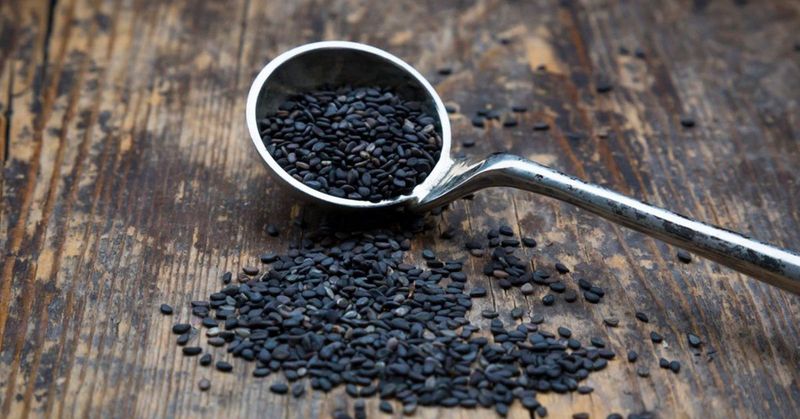
When it comes to hormonal balance, nature has a way of offering just the right ingredients. For women navigating the ebbs and flows of their cycles—or managing shifts during perimenopause and beyond—certain plant-based foods act like gentle allies. Packed with phytoestrogens, antioxidants, fiber, and essential nutrients, these powerhouse picks can help support everything from mood stability to thyroid function. Think of them as edible tools in your wellness kit—delicious, versatile, and surprisingly effective. Whether you’re looking to tame PMS, regulate your cycle, or simply feel more energized and in sync, these 20 foods are a smart (and tasty) place to start.
1. Ground Flaxseeds: Tiny Seeds, Mighty Benefits
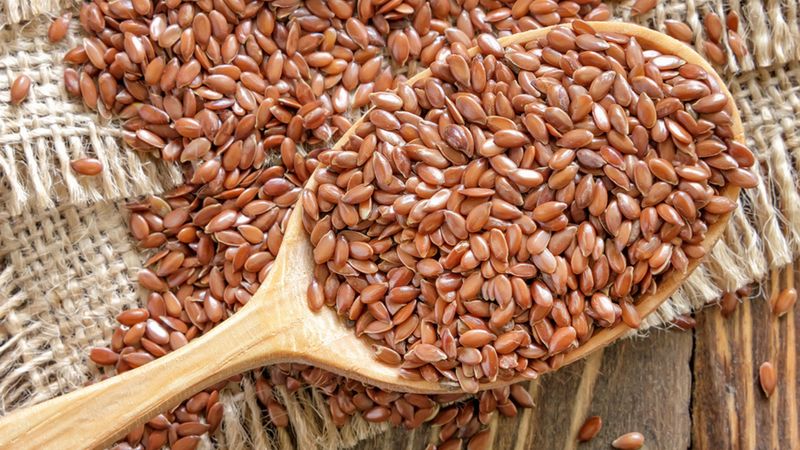
These small brown seeds pack a powerful hormone-balancing punch. Rich in lignans, flaxseeds help regulate estrogen in a way that can reduce PMS symptoms and hot flashes.
The key is grinding them fresh—this releases their beneficial oils and makes nutrients more available to your body. Just one or two tablespoons daily sprinkled on oatmeal or yogurt can make a difference.
Flaxseeds also provide fiber that helps remove excess hormones from your body, creating a double benefit for women experiencing hormonal fluctuations.
2. Sesame Seeds: Ancient Treasures for Modern Women
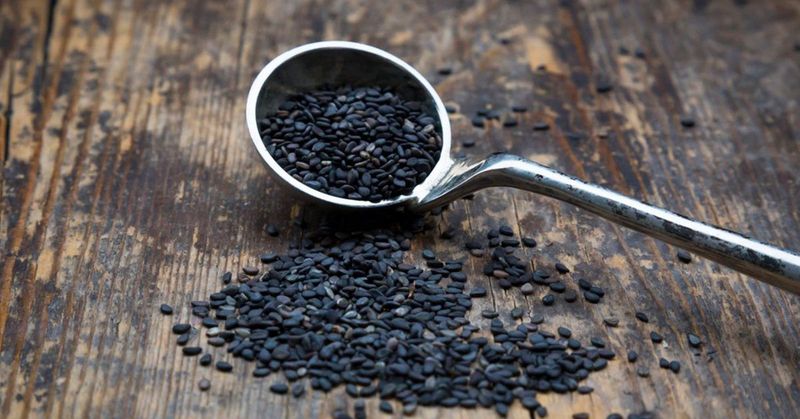
Sprinkle these tiny powerhouses on salads or stir-fries for natural hormone support. Sesame seeds contain special plant compounds called lignans that gently mimic estrogen when your body needs it.
Their impressive calcium content also supports bone health—especially important during hormonal transitions like perimenopause.
Black sesame varieties offer even more minerals than their lighter counterparts. Try tahini (sesame seed paste) as a creamy base for dressings or spreads to easily incorporate these beneficial seeds into your daily meals.
3. Pumpkin Seeds: Green Gems for Hormone Harmony
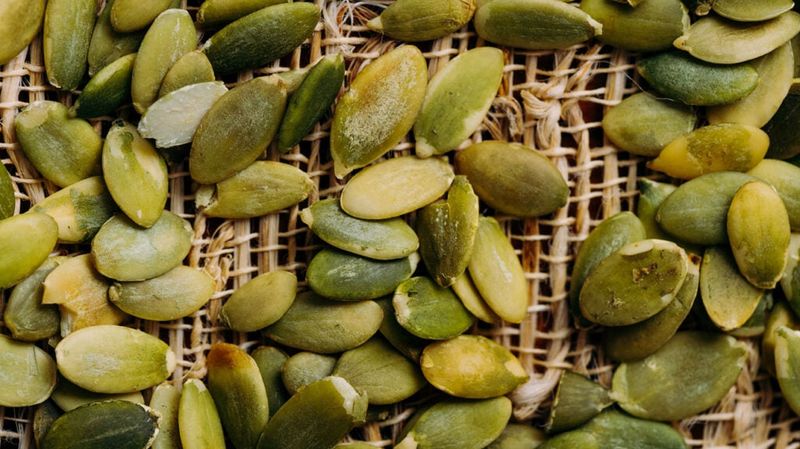
Handful of these green seeds daily can work wonders for your hormonal health. Pumpkin seeds are one of nature’s richest sources of zinc, a mineral that supports progesterone production—crucial for easing PMS and regulating your cycle.
Their magnesium content helps reduce anxiety and water retention that often accompany hormonal shifts. Roast them lightly with a pinch of sea salt for a delicious snack.
Women who add pumpkin seeds to their diet often notice improved sleep quality too, as they contain natural compounds that promote relaxation.
4. Soy Products: Versatile Hormone Helpers
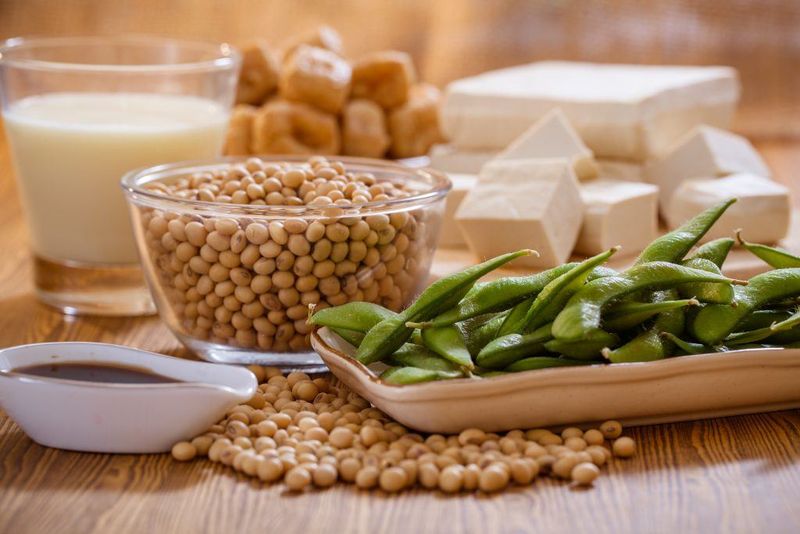
Tofu, tempeh, and miso contain natural plant compounds called isoflavones that can ease menopausal symptoms. These compounds gently mimic estrogen when levels are low but don’t overwhelm your system when estrogen is already sufficient.
Traditional fermented forms like tempeh and miso offer additional digestive benefits. Many women report fewer hot flashes and night sweats when consuming moderate amounts of soy foods regularly.
Try adding half a cup of tofu to stir-fries or smoothies three times weekly—this amount provides benefits without overdoing it.
5. Chickpeas and Lentils: Fiber-Rich Hormone Regulators
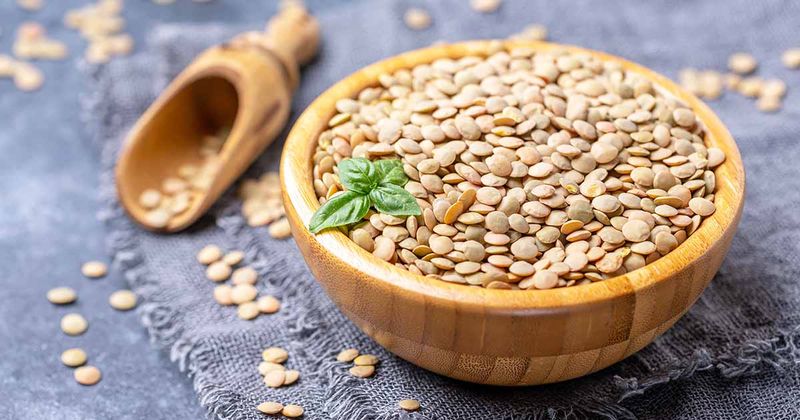
These humble legumes work behind the scenes to keep hormones in check. Their impressive fiber content—about 15 grams per cup—helps your body eliminate excess estrogen, preventing hormonal overload.
Lentils specifically contain iron that replenishes what’s lost during menstruation. The steady energy they provide helps stabilize blood sugar, which directly impacts hormone balance.
Try whipping chickpeas into hummus or adding lentils to soups twice weekly. Your hormones will thank you for these simple additions that keep everything running smoothly.
6. Alfalfa and Clover Sprouts: Delicate Shoots with Powerful Effects

These crisp, tender sprouts contain special compounds called coumestans that help regulate estrogen naturally. Adding just a handful to sandwiches or salads provides these beneficial phytoestrogens without the heaviness of other foods.
Sprouts are living foods, packed with enzymes that support digestion and nutrient absorption. Many women notice improved skin clarity and reduced bloating when incorporating sprouts regularly.
Growing your own at home is surprisingly easy—just rinse twice daily and watch these nutritional powerhouses multiply before your eyes!
7. Avocados: Creamy Stress-Busters for Hormonal Health
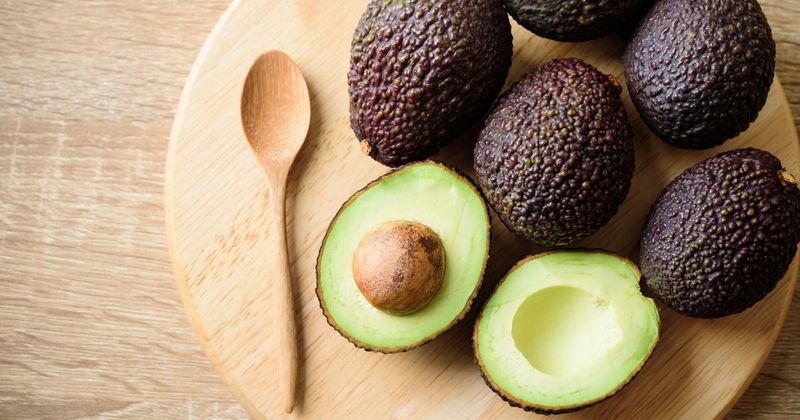
Half an avocado daily can work wonders for your hormonal balance. Their healthy fats provide the building blocks your body needs to create hormones from scratch.
Avocados contain unique plant sterols that reduce inflammation—a key factor in conditions like PCOS and endometriosis. The magnesium they provide helps calm your nervous system, reducing the cortisol spikes that can throw other hormones off balance.
Try mashing avocado with lemon juice as a simple toast topping or salad dressing base for an easy hormone-supporting addition to meals.
8. Brazil Nuts: Selenium Superstars for Thyroid Support
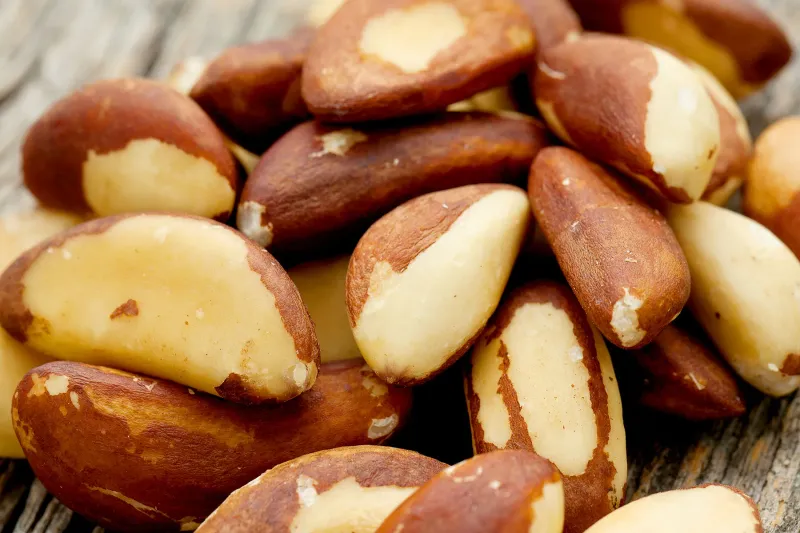
Just two Brazil nuts daily provide all the selenium your thyroid needs to function optimally. Your thyroid gland acts as a master controller for metabolism and energy, directly influencing reproductive hormones.
Women with thyroid imbalances often experience irregular cycles, fatigue, and mood swings. The unique fatty acid profile in Brazil nuts also supports overall hormone production.
Store them in the refrigerator to preserve their delicate oils. Their slightly sweet, buttery flavor makes them perfect as a quick snack or chopped into morning oatmeal for thyroid-supporting goodness.
9. Walnuts: Brain-Shaped Wonders for Hormone Balance
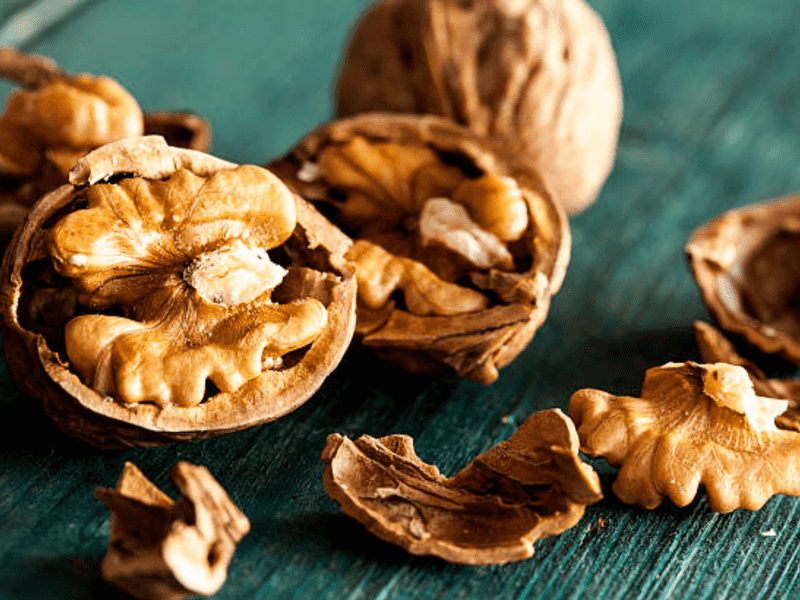
Shaped remarkably like tiny brains, walnuts nourish your brain-hormone connection with essential omega-3 fats. These special fats reduce inflammation that can disrupt hormone signaling throughout your body.
Walnuts contain natural melatonin that supports healthy sleep—crucial for hormone production that happens primarily at night. A small handful daily provides enough ALA omega-3s to make a difference in how your hormones communicate.
Try soaking them overnight to reduce their slight bitterness and make their nutrients more bioavailable for hormone support.
10. Cruciferous Vegetables: Nature’s Estrogen Managers
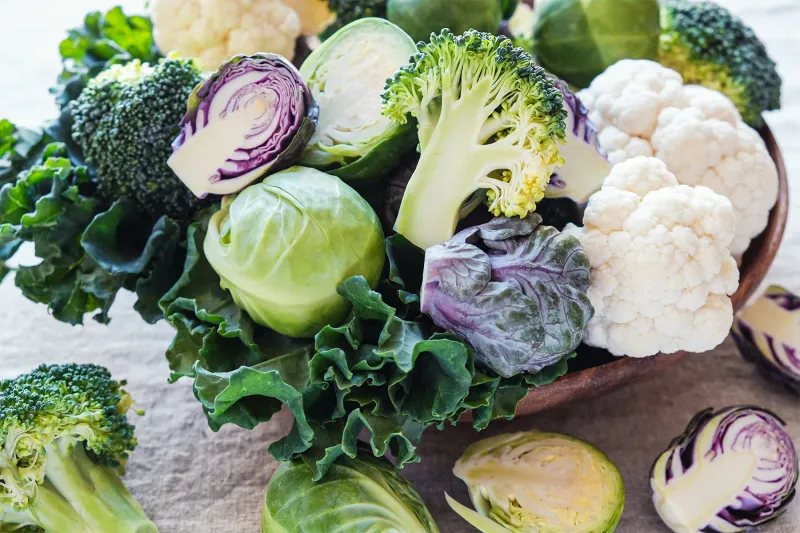
Broccoli, cauliflower and Brussels sprouts contain special compounds that help your liver process estrogen properly. This processing ensures estrogen breaks down into beneficial forms rather than potentially harmful ones.
Steam them lightly to preserve their DIM (diindolylmethane) content—the key compound that supports estrogen metabolism. Women who eat cruciferous vegetables several times weekly report fewer PMS symptoms and more regular cycles.
For maximum benefits, chop them at least 10 minutes before cooking to activate their enzyme content, then enjoy their hormone-balancing effects.
11. Leafy Greens: Mineral-Rich Hormone Supporters
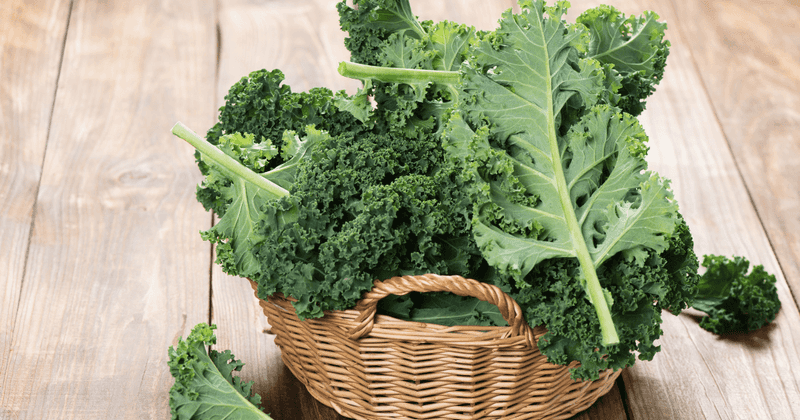
Spinach, kale and Swiss chard deliver magnesium that calms your nervous system and supports hormone production. Their chlorophyll content helps your liver clear excess hormones from your bloodstream efficiently.
The folate in these greens is essential for balanced estrogen levels. Many women notice improved energy and mood when adding a daily serving of dark leafy greens to their meals.
Try blending a handful into morning smoothies—you’ll barely taste them but will reap their hormone-balancing benefits all day long!
12. Asparagus: Slender Spears with Hormone-Healing Power
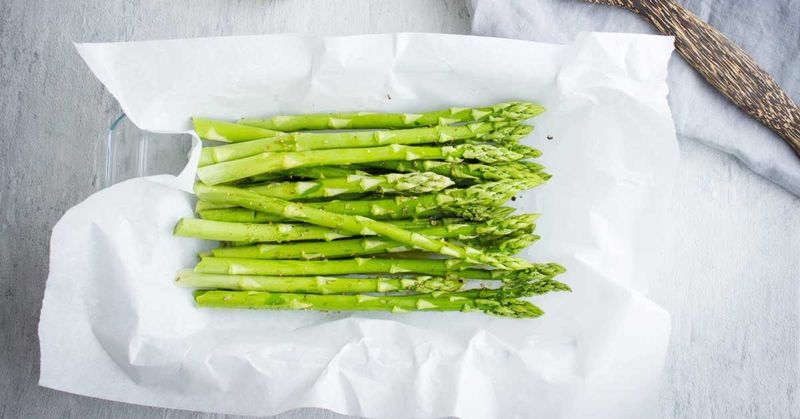
These elegant green spears support hormone balance in multiple ways. Asparagus contains glutathione—a powerful compound that helps your liver detoxify harmful hormone disruptors from your environment.
Their natural diuretic effect helps reduce bloating associated with hormonal fluctuations. Asparagus also provides folate that supports healthy estrogen metabolism.
Lightly roasting asparagus with olive oil preserves its hormone-supporting nutrients while bringing out its natural sweetness. Try adding these versatile spears to omelets, salads, or as a simple side dish twice weekly.
13. Quinoa: Ancient Grain for Modern Hormone Needs
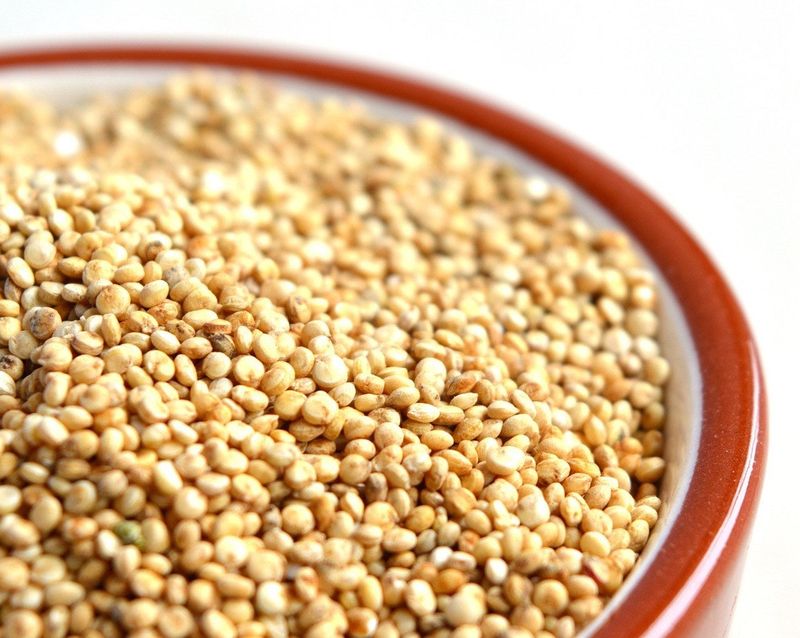
This protein-packed seed (often mistaken for a grain) balances blood sugar—a key factor in hormone health. Quinoa’s complete protein profile provides the building blocks your body needs to create and balance reproductive hormones.
Its impressive magnesium content helps reduce stress hormones that can throw other hormones out of whack. Women who replace refined grains with quinoa often report more stable energy and fewer cravings throughout their cycle.
Rinse quinoa well before cooking to remove its natural bitter coating for the most pleasant taste and hormone-balancing benefits.
14. Fatty Fish: Omega-Rich Inflammation Fighters
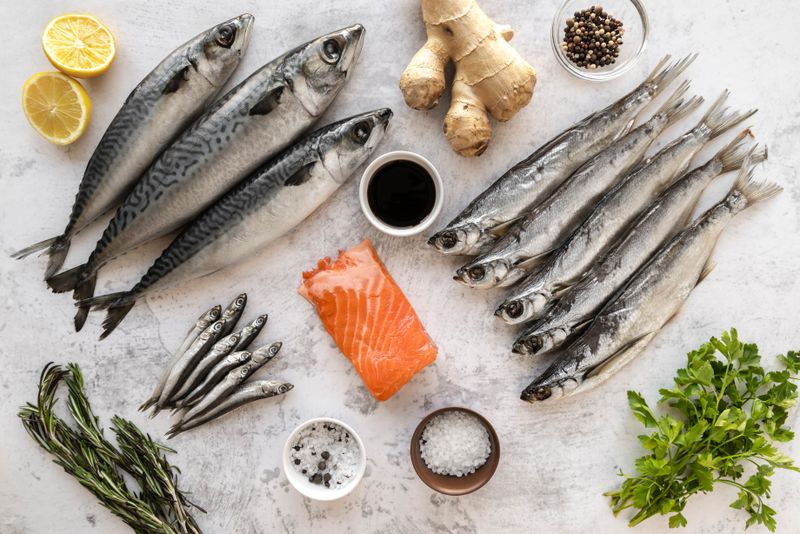
Salmon, sardines and mackerel deliver essential omega-3 fats that reduce the inflammation often behind hormonal imbalances. These special fats help create flexible, responsive cell membranes that allow hormones to communicate effectively with your cells.
The vitamin D in fatty fish supports proper estrogen metabolism and thyroid function. Aim for two servings weekly to notice improvements in hormonal symptoms.
Baking or gently poaching these fish preserves their delicate omega-3 content. Even canned versions offer significant benefits when fresh isn’t available.
15. Dark Berries: Antioxidant Gems for Hormonal Protection
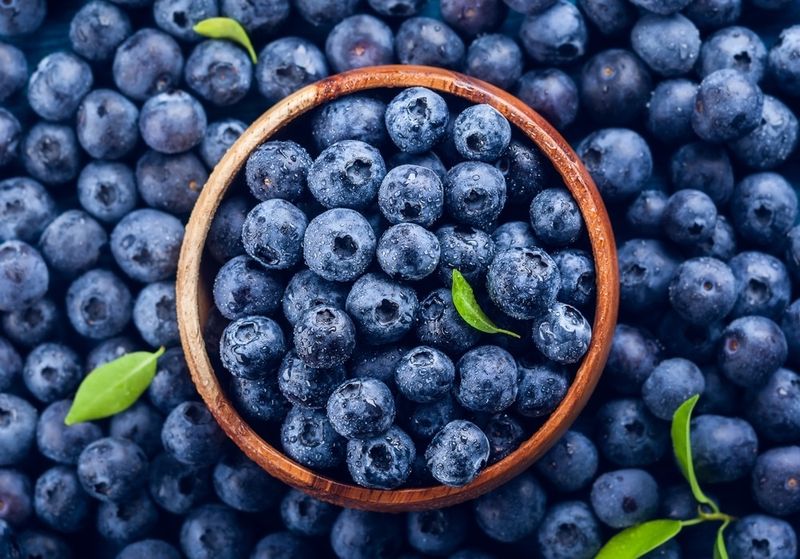
Blueberries, blackberries and other deep-colored berries shield your endocrine system from oxidative stress. Their rich anthocyanin content helps protect delicate hormone receptors from damage.
These berries also support healthy insulin response—essential for preventing conditions like PCOS. The fiber they provide helps remove excess estrogen through improved digestion.
Frozen berries maintain most of their hormone-supporting benefits and make perfect additions to smoothies year-round. Try a half-cup serving daily to support your body’s natural hormone balance.
16. Green Tea: Gentle Detoxifier for Hormone Health
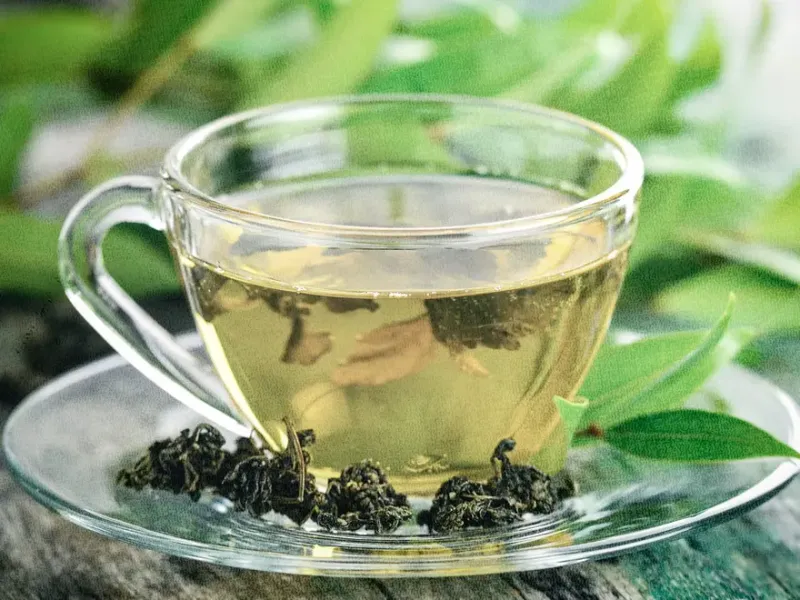
Sipping this ancient beverage helps your liver process hormones more efficiently. Green tea contains L-theanine that calms your nervous system while providing gentle energy—perfect for women dealing with hormonal fatigue.
Its catechins help reduce excess testosterone that can cause issues like acne and unwanted hair growth. Many women find that replacing coffee with green tea reduces period cramps and mood swings.
Brew it at slightly below boiling temperature (about 175°F) to preserve its delicate compounds. Two cups daily provides noticeable hormone-balancing effects.
17. Fennel Seeds: Sweet Relief for Female Discomfort
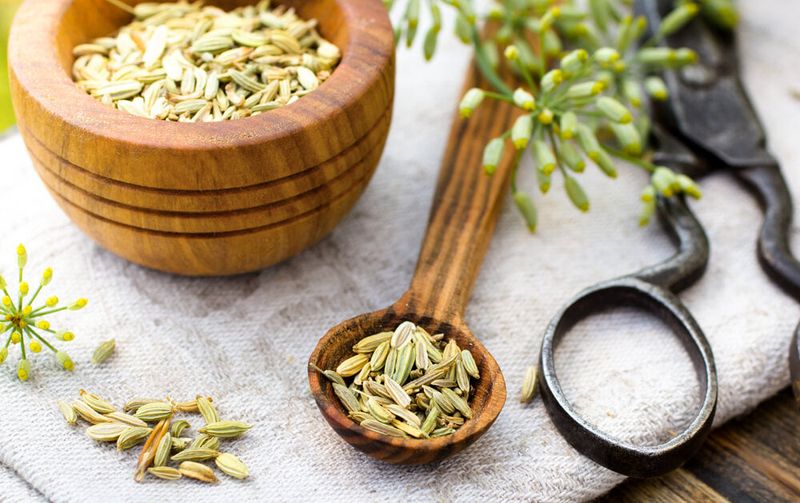
These aromatic seeds have been used for centuries to ease menstrual cramps and hormonal digestive issues. Fennel contains natural plant estrogens that gently support your body’s hormone balance without overwhelming your system.
Chewing a teaspoon of seeds after meals improves digestion and reduces bloating related to hormonal fluctuations. The volatile oils in fennel also help reduce inflammation throughout your reproductive system.
Try fennel tea during the week before your period for natural PMS relief. Its sweet licorice-like flavor makes it enjoyable even without sweeteners.
18. Hibiscus Tea: Ruby-Red Remedy for Hormonal Harmony
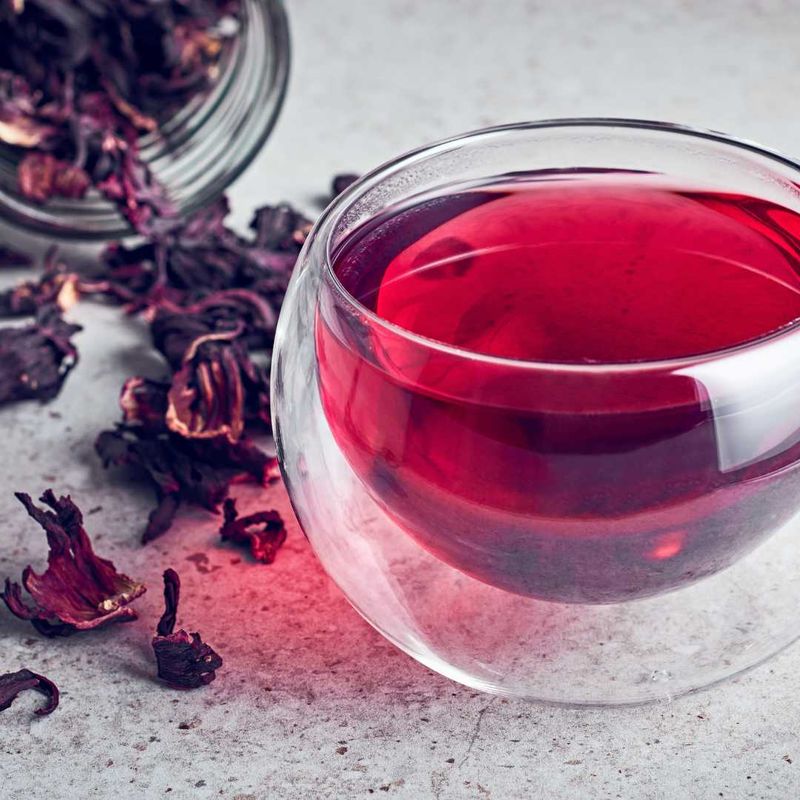
This vibrantly colored tea does more than please the eye—it actively supports female hormone balance. Hibiscus contains polyphenols that help regulate estrogen metabolism and reduce the intensity of hot flashes.
Its natural cooling properties make it especially beneficial during perimenopause. The vitamin C in hibiscus supports collagen production, helping maintain skin elasticity during hormonal transitions.
Enjoy this tart tea hot or cold—both versions provide hormone-supporting benefits. Try brewing a large batch to keep in your refrigerator for a refreshing hormone helper throughout the day.
19. Hops and Red Clover: Herbal Allies for Female Balance

Though best known for beer-making, hops flowers offer powerful support for women experiencing hormonal shifts. Their phytoestrogens gently bind to estrogen receptors, providing relief from hot flashes and night sweats.
Red clover works similarly but with different beneficial compounds called isoflavones. Together, these herbs provide comprehensive support during perimenopause and beyond.
Try them as evening teas—their mild sedative effect promotes restful sleep when hormonal changes might otherwise cause insomnia. Many women notice benefits within just two weeks of regular use.
20. Seed Cycling Mix: Synergistic Support Throughout Your Cycle
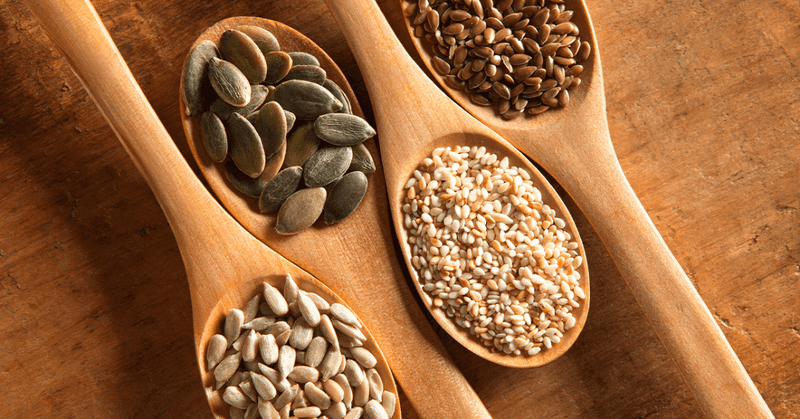
This strategic approach uses different seeds during specific phases of your menstrual cycle. During days 1-14 (follicular phase), flax and pumpkin seeds support healthy estrogen production.
For days 15-28 (luteal phase), sesame and sunflower seeds promote proper progesterone balance. The zinc, selenium, and essential fatty acids in these seed combinations work together to optimize hormone production and metabolism.
Grind them fresh daily for maximum potency—just two tablespoons of the appropriate mix provides noticeable cycle regulation benefits. Many women report more predictable periods and reduced PMS after just three months of consistent seed cycling.

Comments
Loading…